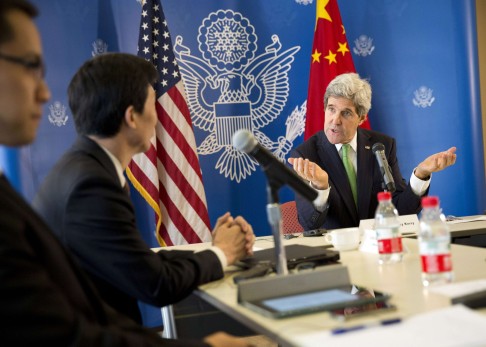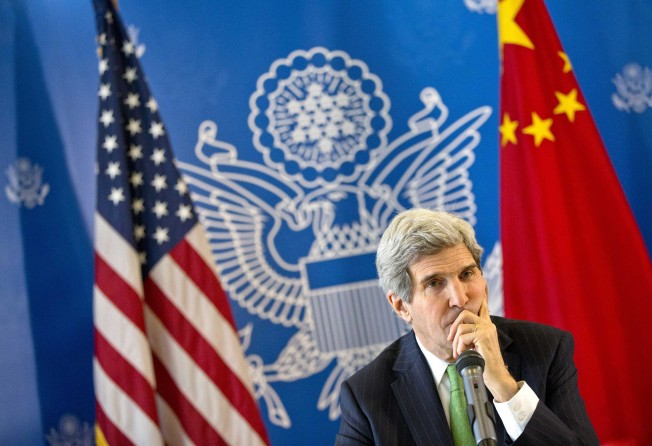
Chinese bloggers ‘naïve’ for meeting John Kerry over internet censorship, says Beijing paper

Pro-government tabloid the Global Times has called several Chinese bloggers “naïve”, two days after they urged the US government to press China for more internet freedom in a meeting with US Secretary of State John Kerry on Saturday.
Four Chinese bloggers were invited to talk about internet freedom with Kerry in a 40-minute session at a meeting organised by the US embassy in Beijing before he concluded his trip to China.
“The US ideological permeation into China has gone far beyond the dissemination of knowledge and ideas and some US forces expect that it will have a political effect conforming with its own interests,” said the paper’s editorial published on Monday.
The Global Times, which is affiliated to Communist Party mouthpiece the People’s Daily, also stated that “dissidents are naïve if they expect the US government to offer special support and assistance to them after they have criticised China’s existing legal system.”
The Chinese government claims internet censorship is a necessary measure and a legal one. Online searches for information deemed politically sensitive by the Chinese government return messages reading “search results are not displayed due to relevant laws and regulations.”
New York Times and Agence France-Presse earlier reported that at the meeting Wang Keqin, an investigative reporter, told Kerry that internet freedom was “going backward” and that Tencent finance reporter Zhang Jialong urged the US Secretary of State to “tear down this great firewall that blocks the internet”.

Ma Xiaolin, a former journalist with the official Xinhua news agency and founder of a blogging site, who also attended the meeting, told the South China Morning Post on Monday that he acknowledged internet freedom was “limited” in China but “a better Sino-US relationship would ultimately lead to an improvement in internet freedom and human rights in China”.
“The Chinese government views internet censorship as a matter of national security and employs it as a defence against any US attempt to subvert its effective rule,” he explained in a telephone interview. “So a less strained relationship between the two counties would subsequently let the Chinese government ease its control.”
Ma added that such meetings certainly served a positive purpose. “It cleared up some misunderstandings between the US government and Chinese internet users,” he said.
Meetings between members of Chinese online communities and senior US diplomats are not unprecedented. Outgoing US ambassador to China Gary Locke in 2012 organised a forum where he answered questions from dozens of influential bloggers.
Popular social networking sites, most notably Sina Weibo, have rapidly evolved into a platform for members of the public to express opinions on issues such as official corruption and pollution in recent years. But late last year the Chinese government ordered an extensive crackdown on internet rumours, effectively suppressing public discourse in the blogosphere.